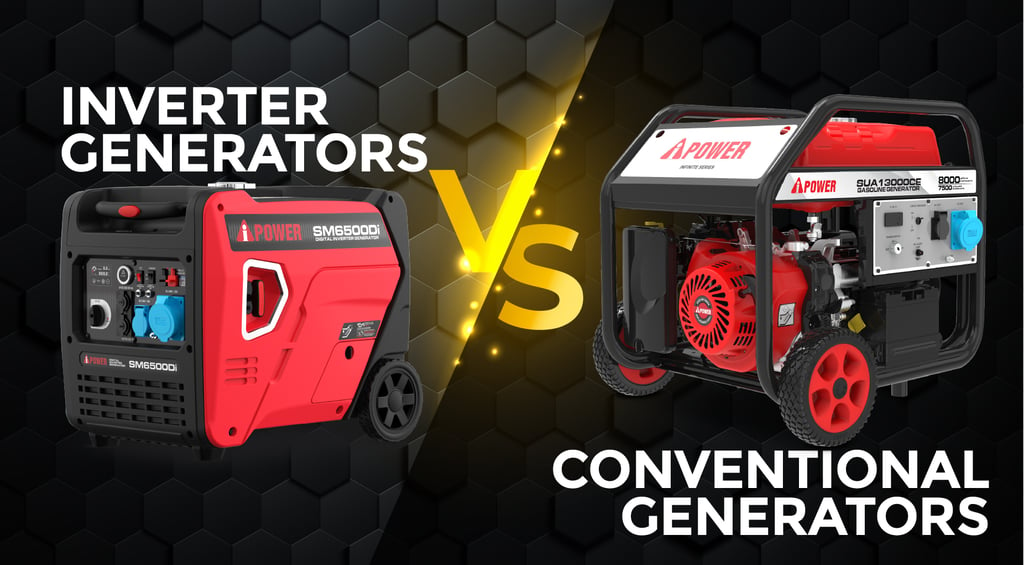Inverter Generators vs. Conventional Generators: What’s the Difference?
Discover the key differences between inverter generators and conventional generators. Learn which is best for your needs—quiet operation, fuel efficiency, clean power, or heavy-duty use. Explore top-quality inverter generators in the UAE at AiPower.
6/12/20252 min read


Generators are now essential in today's power-hungry world, whether for outdoor camping, RV excursions, job sites, or home backup. However, not every generator is made equally. Knowing the main distinctions between an inverter generator and a traditional generator will help you choose the best option for your needs regarding power, portability, and cost.
We provide both technologies at AiPower, each designed for a particular use case. Let's examine their differences and why inverter generators are quickly taking the lead among contemporary users in the United Arab Emirates and elsewhere.
1. Power Output Quality: Clean vs. Raw Power
Inverter Generator: Produces pure sine wave output by converting raw power (AC to DC and back to AC) using sophisticated electronics. For delicate devices like laptops, smartphones, medical equipment, and smart TVs, this clean and steady power is perfect.
Traditional Generator: Generates AC power straight from the alternator, which frequently causes voltage swings. It may harm sensitive electronics, but it is adequate for tools and appliances.
2. Noise Level: Inverter Generator Silent Operation Matters
Inverter generators are ideal for campgrounds, RV parks, and residential areas because they are constructed with sound-insulated housing and run at lower decibel levels. The AiPower SM4500i, for example, is a low-noise generator that operates at only 65 dB.
Conventional generators are considerably noisier due to their larger engines and steady RPM, which can be annoying in areas where noise is a concern.
3. Fuel Efficiency & Runtime
Inverter Generator: Equipped with intelligent throttle control that modifies engine speed in response to load demand. Longer run times on a single tank and improved fuel economy result from this.
Conventional Generator: Uses more fuel because it operates at a steady speed (usually 3600 RPM) regardless of load.
4. Portability & Weight
Inverter generators are compact, lightweight, and frequently have ergonomic wheels or handles. Ideal for portable power when camping, working outside, or traveling.
Larger fuel tanks and engines make conventional generators heavier. Usually, these are immobile or difficult to move.
5. Cost & Power Output Range
Inverter generators are generally more costly because of their sophisticated electronics, but they also provide better features, dependability, and safety.
Conventional generators are better suited for heavy-duty industrial or construction applications because they are more reasonably priced and come in larger power capacities.
Which One Is Right for You?
Conclusion
An inverter generator is the obvious choice if portability, clean power, quiet operation, and fuel efficiency are important to you. On the other hand, a traditional generator might be adequate if you're on a tight budget and need raw power for tools or large equipment.
Visit our website at 👉 www.aipoweruae.com to learn more about AiPower's premium selection of conventional and inverter generators in the United Arab Emirates.
For every circumstance, we provide the most dependable power solutions, professional guidance, and post-purchase assistance.

Phone : +971 4 295 5800
@2024 Senci General Trading LLC, All Rights Reserved


Dubai, United Arab Emirates
